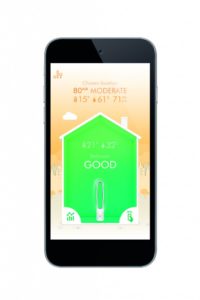Alan Turing Institute to review London’s air quality data
A national data science research research body — The Alan Turing Institute — is to work alongside City Hall to review the way that air quality is modelled and forecast in London as part of a two-year project.
The Alan Turing Institute — named after the computer scientist and developer of the Enigma machine during the Second World War — is the national institute for data science, headquartered at the British Library.

The Alan Turing Institute will examine the way that air quality data is gathered and used from around 100 monitoring sites
The project, announced on Friday (20 October) will complement the Mayor’s existing work with other major London institutions, such as King’s College London, who work with boroughs and City Hall to undertake local air quality monitoring and to develop the London Atmospheric Emissions Inventory.
It is taking place as part of the Turing-Lloyd’s Register Foundation programme in ‘data-centric engineering’, which aims to use data science to transform the safety and efficiency of complex infrastructure systems.
Currently, there are 100 large air quality monitoring stations in London active at any time, but, the numbers and types of monitors and sensors are likely to increase in the coming years, City Hall has said.
Analysis
The project will seek to develop ‘flexible’ ways to incorporate these new sources of data collection in City Hall’s air quality modelling and analysis work, according to the Institute.
Commenting on the project, the Mayor’s chief digital officer, Theo Blackwell, said: “Working with the Alan Turing Institute will continue our efforts to harness London’s world-class strengths in data science and innovation to clean up the air we breathe to make life better for all Londoners.”
Theo Damoulas, Turing Fellow and Assistant Professor of Data Science at the University of Warwick, said: “We are very excited to be working closely with City Hall and bringing our data science expertise to bear on such an important matter for the life of Londoners.
“My group at the University of Warwick and the team from the Turing-Lloyd’s Register Foundation programme are looking forward to developing and deploying state of the art statistical and machine learning algorithms on the air quality sensor networks in order to extract knowledge, inform policy, and monitor interventions.”
Related Links
Alan Turing Institute












